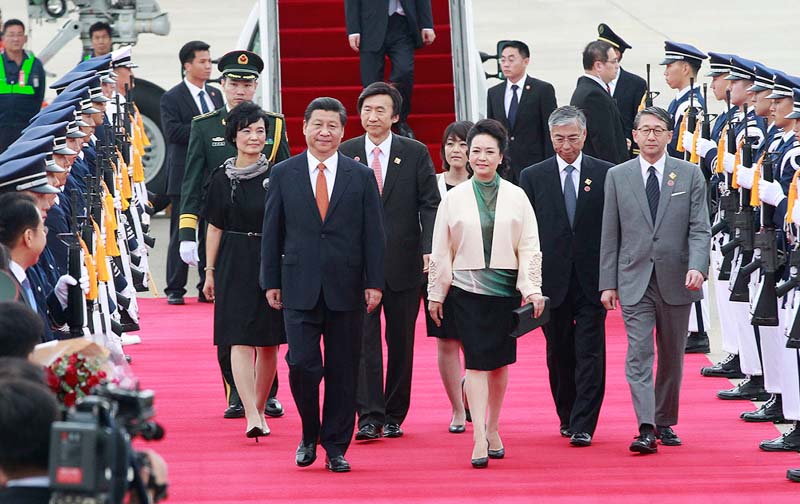
BBC Online :
Chinese President Xi Jinping has arrived in South Korea for a two-day visit set to focus on North Korea.
It is the first time a Chinese leader has visited Seoul before Pyongyang, and comes amid cooler China-North Korea ties.
China is North Korea’s biggest trading ally and the nation most able to wield influence over it.
But in recent months Beijing has appeared increasingly frustrated with its unreliable neighbour.
Last year, North Korea carried out its third nuclear test and there are reports that it could be planning a fourth.
Xi and South Korean President Park Geun-hye are also expected to discuss growing economic ties, as the two nations work towards a free-trade agreement.
Wider strategic concerns are also in focus. Both China and South Korea are at odds with Japan over historical issues. But Seoul, like Tokyo, is a major US ally.
South East Asian nations that are, like Japan, involved in territorial disputes with Beijing are also moving closer to the US. So China will be keen to shore up ties with Seoul.
The Chinese president is said to enjoy a friendly relationship with Ms Park, with whom he will hold talks.
Despite new warmth and strategic interest, the two leaders’ discussions today are likely to expose the old intractable differences at the heart of their political visions.
Both Xi and Ms Park may agree that North Korea’s nuclear programme is undesirable but they differ on how to stop it.
South Korea would like Beijing to do more to pressure Pyongyang, but for decades China has made the strategic calculation that stability in North Korea comes first – in its eyes, avoiding implosion of the regime is more important than avoiding nuclear tests.
Instead, Beijing has encouraged all parties to return to talks without pre-conditions. Seoul and Washington say that amounts to “buying the same horse twice”. The discussions here will be watched for any small shifts in tone by Beijing, but the basic parameters of China’s strategic interest are unlikely to change.

